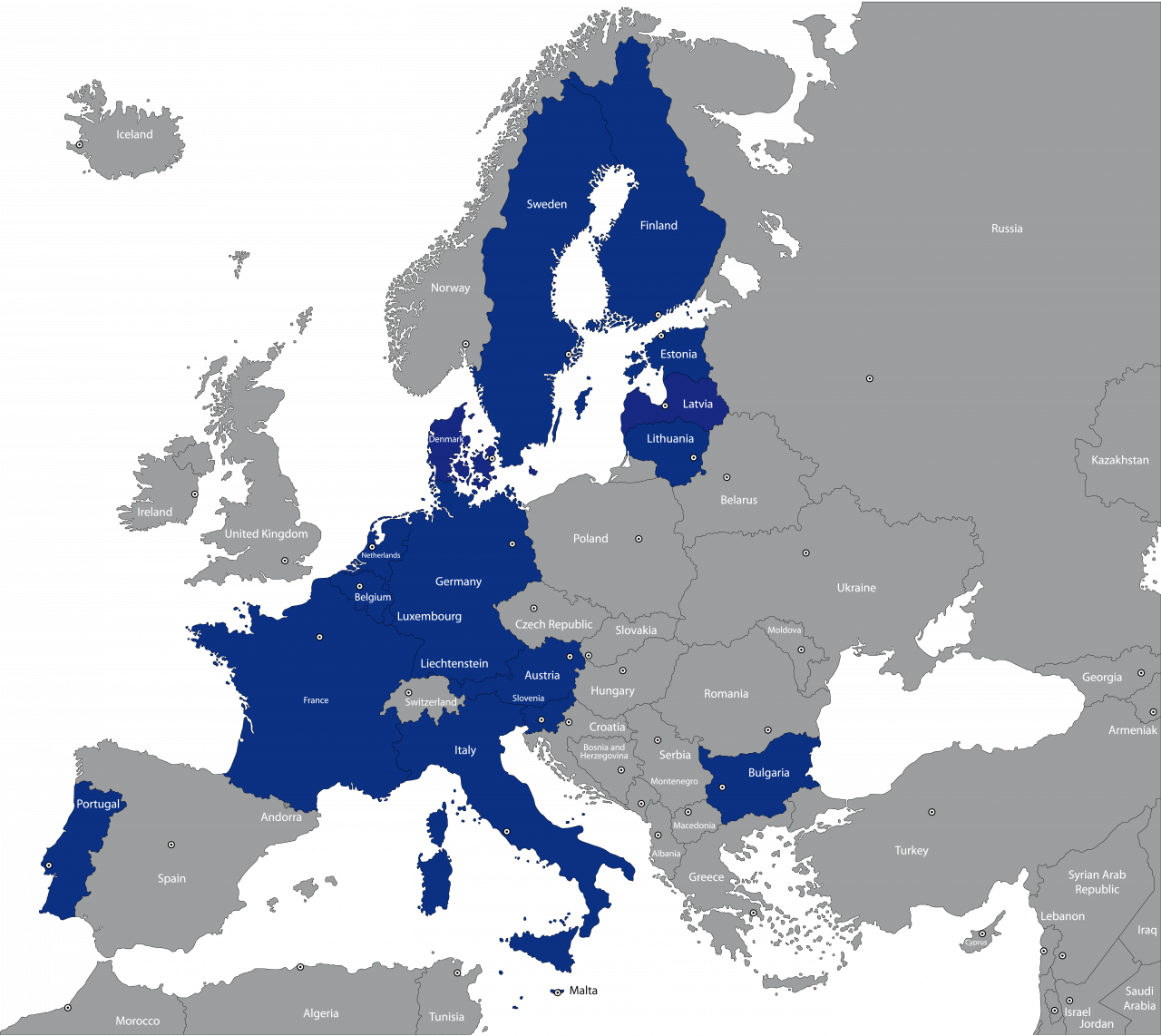The long-awaited Unified Patent Court opens its doors on 1 June 2023 now that Germany has ratified the UPC Agreement. Alongside this, patents granted at the European Patent Office will be able to be registered for a single Unitary right covering certain EU member states (in addition to other states being individually registered separately in the conventional manner). This is widely being billed as the biggest shake-up to the European patent system since it began 50 years ago, and we are looking forward to helping our clients take advantage of the possibilities afforded to patentees.
The Unitary Patent
The Unitary Patent covers (currently) the 17 EU member states that have so far ratified the agreement (namely Belgium, Bulgaria, Denmark, Estonia, France, Germany, Italy, Latvia, Lithuania, Luxembourg, Malta, Netherlands, Austria, Portugal, Slovenia, Finland, and Sweden). These are shown below:
The Unitary Patent therefore covers only a subset of the European validations possible using the standard procedure. Notably, the UK is not included as it is no longer an EU member state. Most applicants obtaining a Unitary Patent will be be likely also to validate in the normal manner in at least some other states.
A Unitary Patent can only be obtained by requesting a patent with unitary effect based on a granted European patent examined at the European Patent Office . Only European patents granted on or after 1 June 2023 are eligible. The deadline for requesting a patent with unitary effect is one month from the date of grant. A translation of the patent into an EU language must be filed with the request.
A Unitary Patent may be desirable in place of validating in many different countries as it will be cheaper in overall renewal fees payable than separate validations in those countries. However, as the patent is unitary in nature, a single successful revocation action will knock out the entire patent so the cost benefit needs to be balanced against this risk. Furthermore, if your European strategy usually involves validating in only a few key designated states (say, UK, France and Germany), or at some stage reducing states covered then a unitary patent may not be appropriate.
The Unified Patent Court
The new Unified Patent Court will be the sole forum for infringement and revocation actions relating to all Unitary Patents. Additionally, the new court seizes jurisdiction in respect of the states coloured in the above map for existing or future granted European patents unless action is taken by the patentee. The states under the jurisdiction of the Unified Patent Court could also grow as further EU countries accede.
At present, if a patentee or third party wishes to take action in respect of a European patent, an infringement or revocation action must be brought in individual validated states, sometimes leading to different decisions relating to validity and/or infringement in different states. However, the Unified Patent Court enables a single action to cover all the states under its jurisdiction. Obtaining a single decision may have advantages for a patentee wishing to assert its patent against an infringer. However, it also carries the risk that the patent could be invalidated in all the states under the jurisdiction of the Unified Patent Court with a single action.
For a transitional period of seven years (which may be extended), patentees that do not opt for Unitary Patents will have the option of "opting out" their European patents from the jurisdiction of the Unified Patent Court. We expect many patentees will benefit from opting out for several reasons. These include protecting European patents from a central revocation action, and the uncertainty of whether the new court will tend towards being anti- or pro-patentee. It is normally possible to withdraw a request to opt-out at a later date, so opting out initially would not typically bar a patentee from taking advantage of the Court should they later decide to do so.
Williams Powell's attorneys have rights of audience before the new Unified Patent Court and a strong litigation team. We are looking forward to the added flexibility and options the new court will bring. We are happy to provide further advice upon request.

